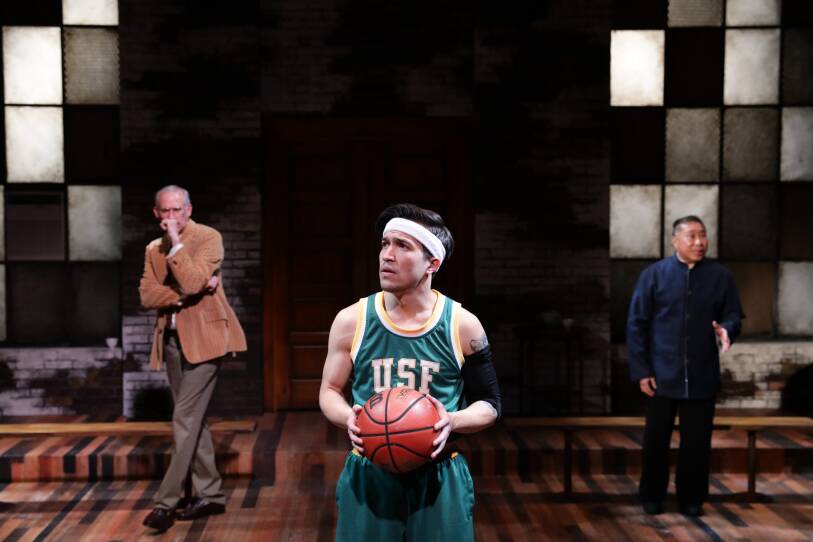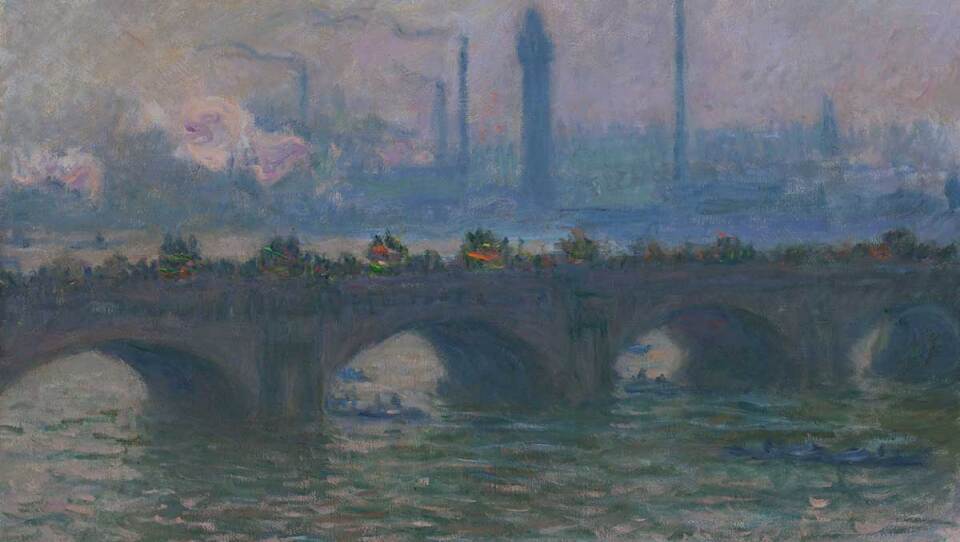In this latest weekly installment of GBH News Executive Arts Editor Jared Bowen's roundup of arts news and events, art historians and museums are looking to art to understand the impact of climate change, while "Make Way for Ducklings" makes it way to the stage in a new musical.
Classic Art and Climate Change
Artists J.M.W. Turner and Claude Monet are known for their beautiful landscape paintings. Now researchby art historians and scientists is highligting how these artists have depicted vastly changing environmental conditions as a result of what we now recognize as human-induced climate change.
Particularly, the impact of the Industrial Revolution comes to light through the works of Turner and Monet, both of whom often painted London scenes. The depictions of smog, muted colors, and limited visibility in several of the artists’ paintings from this time directly correlate to what was happening with air pollution during the 19th century.
The question, in turn, becomes whether the artists were simply depicting what they saw, or if it was a warning for viewers about the impacts of climate change. Bowen weighed in on the debate, reflecting that “Monet was probably more painting what he saw, but Turner was very mindful of the world changing and what he wanted to represent.”

Art Preservation, Rising Energy Costs, and Environmental Impact
For years, museums have set out to preserve timeless works of art through stringent climate control inside galleries and storage spaces. Though very energy-intensive, the practice has long been justified because it has allowed works of art to survive without decay — metal wasn’t rusting, paintings weren’t cracking or peeling, and wood wasn’t warping, so long as they were kept at the correct temperature and humidity.
However, museums are now reassessing these decisions in light of a worsening climate crises alongside soaring energy prices due to war in Ukraine. Over at the Guggenheim Bilbao, their entire collection is permanent, meaning no pieces have been loaned under the conditions that they be kept in certain environmental conditions. The museum has experimented with increasing leniency in temperature control, and found that “the work is still fine and they’re saving tens of thousands of dollars.”
Bowen also noted that climate control needs vary based on the museum’s geographic location. While Boston museums need to account for winter temperatures, one in St. Petersburg, Florida, would have different needs — in turn, “maybe we don’t have to have these universal standards…. They realize that they have more flexibility and latitude so work doesn’t get destroyed.”
"Make Way for Ducklings"
Now playing at the Wheelock Family Theatre through March 12
Inspired by Robert McCloskey's classic children’s book, '"Make Way for Ducklings, the Musical," was co-created by playwright and Massachusetts Cultural Council Executive Director Michael J. Bobbitt. It follows the story of Mr. and Mrs. Mallard and their ducklings as they settle into life in Boston, as well as the ducklings’ journey as they learn new skills such as how to be kind and how to negotiate the big world around them.
Calling back to a “golden age of musicals, “Make Way for Ducklings” has attracted audiences of all ages—small children, parents, and even “lots of grandparents,” as Bowen explained.

"Fairview"
Now playing at the SpeakEasy Stage Company through March 11
Centered on a Black family that has gathered to celebrate their grandmother’s birthday, “Fairview” opens as “what could be construed as a sitcom.” As they gather, a “lovely scene” unfolds, depicting the love and closeness of the Frasier family.
What comes next is for those in the audience to learn for themselves — a major twist that the SpeakEasy Stage Company itself calls “one of the most outrageous and jaw-dropping endings in theatre history.” In order to preserve the suspense and power of "Fairview" for people who are still planning to see it, Bowen did not elaborate on the plot. Instead he focused on the themes, “this is a piece that Jackie Sibblies Drury wrote as inspired by surveillance and how that affects Black people in particular.” Drury, however, created the piece while being cognizant of majority-white theater audiences and the impact of the white gaze, ultimately resulting in a production that leaves viewers “acutely aware of how many people in the audience were white.”

"The Great Leap"
Now playing at Lyric Stage Company of Boston through March 19
“The Great Leap” follows Manford, a student longing to join a basketball team and play a “friendship game” in China. Jumping between time periods and geographic locations, the story spans the 1970s and 1980s, notably centering Manford’s trip to China in 1989, at the height of Tiananmen Square protests and martial law. The production, bringing sports to the stage, is “very compelling” and “very interesting.”










